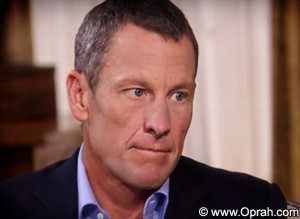Performance bonus payments and false advertising subjects of latest cases
 Already facing legal claims from SCA Promotions and the Sunday Times over cases he won against them in the past, as well as a Qui Tam whistleblower suit which could potentially see him face penalties of tens of millions of dollars, Lance Armstrong now looks to have two more cases to fight in the courts.
Already facing legal claims from SCA Promotions and the Sunday Times over cases he won against them in the past, as well as a Qui Tam whistleblower suit which could potentially see him face penalties of tens of millions of dollars, Lance Armstrong now looks to have two more cases to fight in the courts.
The first is from an insurance company which covered the bonuses due to be paid to Armstrong after he won the Tour de France in 1999, 2000 and 2001. ABC News revealed today that Acceptance Insurance is seeking $3 million plus damages from the Texan, having filed the case yesterday evening in Austin, Texas.
While SCA Promotions – which covered bonuses due to him from 2001 to 2004 – has been in the public eye for several years due to its decision to withhold payment for the final year, its subsequent loss of the case and $7.5 million payout, Acceptance Insurance has previously stayed off the radar.
However the company has decided to pursue Armstrong, reportedly taking the decision on the basis of the rider’s Oprah Winfrey confession. It believes that Armstrong’s admission of secret doping and the methods he used to avoid detection mean that he has admitted fraudulent concealment.
The second case which has come to light is a proposed class action lawsuit filed yesterday in a federal court in Los Angeles. It refers to the spokesman role Armstrong played with the FRS company, and specifically the claims made in advertising that FRS’ supplements were the reason for his success.
According to Bloomberg, the the complaint suggests that consumers either would have paid less for FRS products or wouldn’t have purchased them at all if the misleading ads had not been issued.
Defence tactics detailed in relation to Qui Tam lawsuit:
One week ago the US Department of Justice confirmed reports that it had decided to join Floyd Landis’ Qui Tam whistleblower lawsuit against Lance Armstrong and others, stating that it believes fraud may have been committed.
It said that it would join the lawsuit against Armstrong, former US Postal Service team manager Johan Bruyneel and Tailwind Sports, the owners of the team. Some others, including the team owner Thom Weisel, are not a target for the Department of Justice at this point in time.
It states that there were clear stipulations in place that banned substances were forbidden, and because this rule was broken, that the US Postal Service was essentially defrauded.
According to USA Today, Armstrong and his legal team will defend against the action by arguing that the case is outside the six year statute of limitations, and also that that the government knew or should have known about doping on the U.S. Postal Service cycling team, yet did not act to stop it.
“We will say there was enough information (about doping on the USPS team) to put you (the government) on notice, and you should have filed a false claim before,” stated an unnamed source from Armstrong’s camp.
However Armstrong vigorously denied ever using banned substances up to this year, and took legal action against several of those who suggested otherwise.
The Qui Tam whistleblower case was initiated by former US Postal Service rider Landis in 2010, with the disqualified 2006 Tour winner admitting that year that he used banned substances, and that Armstrong and others on the team did likewise.
Those allegations ultimately proved to be a highly important catalyst in driving the investigation forward, with federal agents led by Jeff Novitsky working on the case until US Attorney Andre Birotte surprisingly ordered a halt to the action. The US Anti Doping Agency then took over and ultimately handed him down a lifetime ban and stripped him of his results since August 1st 1998.
Those sporting sanctions were something which frustrated Armstrong greatly but, since his Oprah confession, things appear to have become more serious again. The number of legal cases has risen and the stakes are a lot higher.